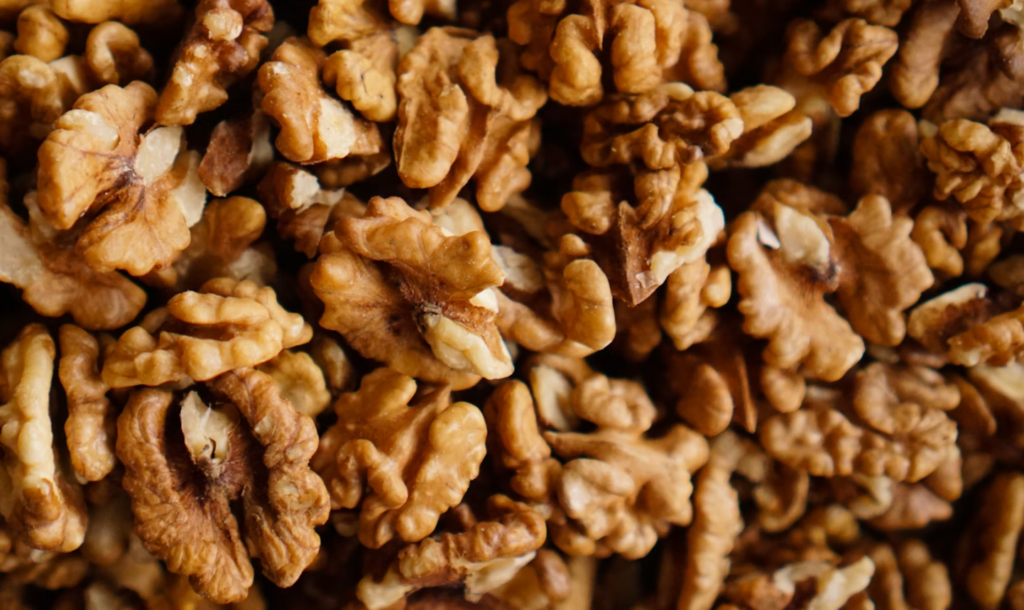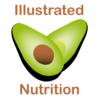Heart Health Awareness Month: Nurture Your Heart with Heart-Healthy Eating
 February is American Heart Month, a great time to focus on our cardiovascular health, raise awareness of heart disease, and take simple steps to protect our hearts. One of the easiest yet most impactful ways to improve the health of our hearts is improving our diet. What we eat really does matter. The foods and drinks you consume can increase and decrease your risk of heart disease. To make things simple, here are some foods to embrace and also foods to avoid for a heart-healthy lifestyle.
February is American Heart Month, a great time to focus on our cardiovascular health, raise awareness of heart disease, and take simple steps to protect our hearts. One of the easiest yet most impactful ways to improve the health of our hearts is improving our diet. What we eat really does matter. The foods and drinks you consume can increase and decrease your risk of heart disease. To make things simple, here are some foods to embrace and also foods to avoid for a heart-healthy lifestyle.
Foods to Eat for a Healthy Heart
Get Plenty of Fruits and Vegetables
We all know that fruits and vegetables are healthy and that we need to eat more of them, and yet so many of us still don’t seem to get it. Fruits and veggies are packed with vitamins, minerals, fiber, and antioxidants that promote heart health. Aim for a variety of colors and types to maximize their benefits. Just don’t get too caught up in “eating the rainbow.” Just go out and get what looks good, and then eat it!
Fresh is always best. But frozen fruits and veggies without anything added is fine. Canned is also a good option; get the low-sodium varieties. Dried fruit can also be plenty healthy, but a lot of dried fruits have added sugar, so either do your own drying or get particular about the brands you buy. Fruits are already sweet. No need to add sugar!
Embrace Whole Grains
Whole grains are rich in fiber, which is a too-often-overlooked macronutrient that can help lower cholesterol and improve heart health. When you’re out shopping, look for labels that say “100% whole grain.” But we’re not talking about whole grain Lucky Charms! We mean brown rice, quinoa, oats, barley, and whole-wheat pasta. Steel-cut oats, for example, can make a great breakfast.
Opt for Lean Proteins
Just like vitamins, minerals, carbs, and fiber, protein is essential for overall health. But the kind of protein you choose can make a big difference. Like fat and carbs, you need to stay away from processed foods. Processed proteins like packaged deli meats are loaded with things you don’t want in your body. Focus on lean animal proteins as well as plant-based options. Salmon, mackerel, and skinless chicken are some examples. Try to reduce your intake of red meat.
There are loads of healthy plant proteins, like beans, lentils, and unsalted nuts. On top of that, most grains also have a good amount of protein. Those oats aren’t just carbs and fiber!
Incorporate Healthy Fats into Your Diet
Not all fats are bad of course. Monounsaturated and polyunsaturated fats can support a healthy heart when not consumed in excess. Avocados, flaxseeds, almonds, and walnuts are some good choices. Olive oil is great too, but be cautious about what kind you get.

Find brands that display their harvesting and processing dates, and purchase the ones that have the least amount of time between those dates, preferably just a few days. Don’t purchase oil from stores that put it directly underneath light (artificial or natural). And don’t take too long to consume the oil after you purchase it. The health benefits wane with time.
Foods to Limit or Completely Avoid
Saturated and Trans Fats
These fats can raise your low-density lipoprotein (LDL), known better as “bad” cholesterol, and by so doing, they also increase your risk of heart disease, which is the leading cause of death for American adults. To reduce your accumulation of LDL, cut back on red meat, butter and other high-fat dairy, and processed snack foods.
Sodium (Salt)
Consuming too much salt can also lead to high blood pressure, a major risk factor for heart disease. Too much salt is also not good for your kidneys, which get overtaxed when you have lots of salt and not enough water. Packaged meals and canned soups can sneak in a lot of salt. Check the labels and avoid these types of foods. Make your own soup or at least choose the low-sodium varieties.
Added Sugars
This probably seems the most obvious, but excess sugar can contribute to weight gain, which also increases your risk of heart disease, as well as other diseases. We could list some sugary foods to avoid, but let’s be honest, we all know what foods these are. So use your head, and your best judgment, and limit your sugar intake. Eat fruit instead.
Tips for Heart-Healthy Eating
Read Nutrition Labels: Too many people look only at the front of the label. And many who do look at the nutrition label don’t analyze it deeply enough. Really look at what is inside the food you’re eating, not only the macros and other nutrients but also the actual ingredients. Seek out products with low sodium, no trans fats, and minimal added sugars. You may be surprised by how many cereals list “sugar” as the second ingredient.
Create Your Own Balanced Meals: Preparing your own food is a surefire way to control what you eat. Create homecooked meals, and do as much from scratch as you can. This really isn’t as hard as it sounds, especially with the seemingly infinite number of recipes we can now google. Combine lean proteins, whole grains, and plenty of vegetables. Add only a minimal amount of salt and use plenty of herbs to flavor your food.

Limit Alcohol: If you drink, do so in moderation, or in other words, with restraint. If you don’t drink, then don’t start. The most-recent research on alcohol consumption points to basically no net positives for drinking, at least none that are worth the negatives. The American Heart Association recommends no more than one drink per day for women and two for men.
Small Changes Lead to a Big Impact
Improving your heart health doesn’t mean overhauling everything about your life overnight (unless you’re into that). Just start with small, manageable changes. Swap out your white bread for more wholesome whole-grain options. Replace those salty snacks in the pantry with fresh or dried fruits. Ditch the soda and squeeze a lemon into some water. Even experiment with plant-based meals a couple times a week. Every step toward a healthier heart is a step toward a healthier you!
This American Heart Month, and in honor of Valentine’s Day, give your own heart the love it needs by taking charge of your heart health by making mindful choices. Your heart will thank you for it!
